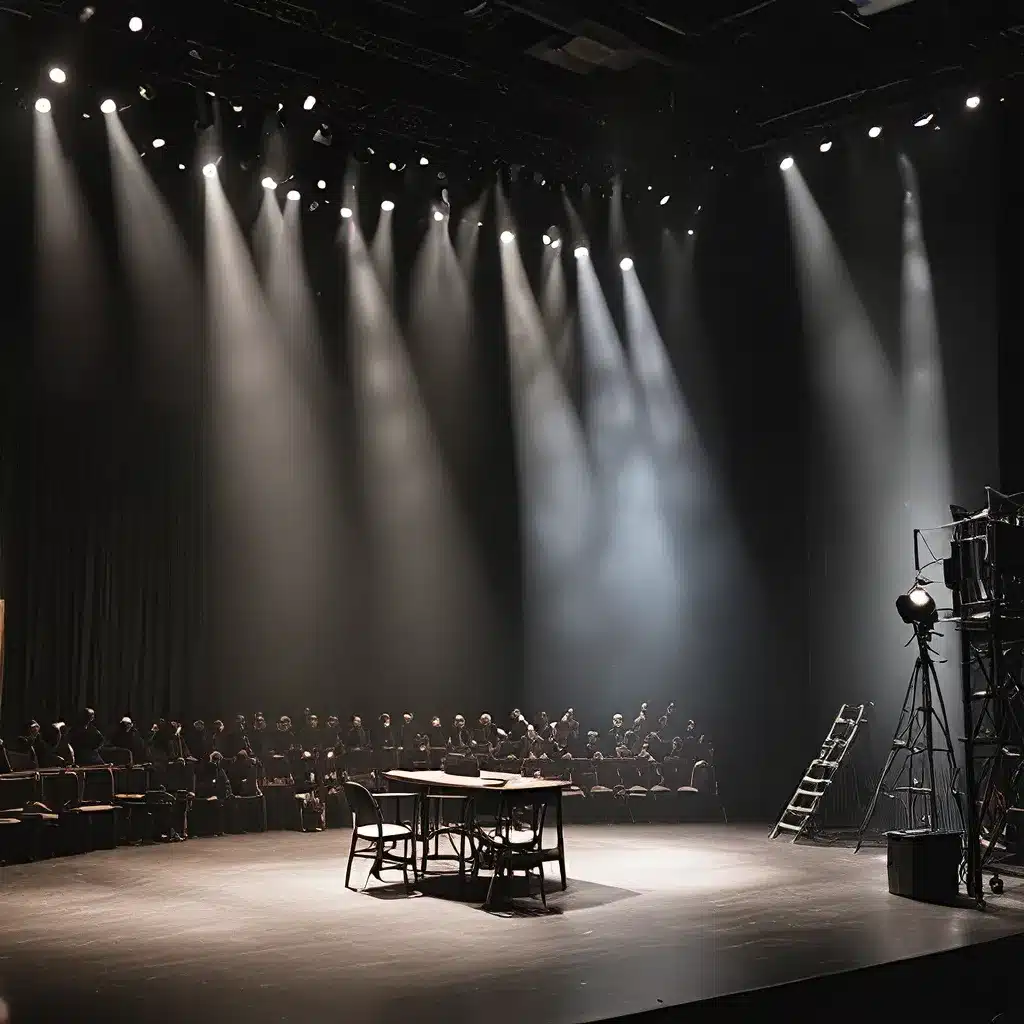
As I step onto the dimly lit stage, the anticipation in the air is palpable. The audience is waiting with bated breath, ready to be swept away by the magic of live performance. But before the curtain rises, an unsung hero is hard at work, ensuring that every moment runs like a well-oiled machine. This is the realm of the stage manager, the maestro who orchestrates the symphony of sights and sounds that make up a theatrical production.
The Unseen Virtuosos
If you’ve ever attended a live show, you’ve likely marveled at the seamless transitions, the perfectly timed cues, and the seamless flow of the performance. What you may not realize is that behind the scenes, a team of stage management professionals is working tirelessly to make it all happen.
The stage manager, often referred to as the “captain of the ship,” is the conductor of this intricate ballet. They are responsible for coordinating the entire production, from the moment the first actor steps onto the stage to the final curtain call. It’s a role that requires a keen eye for detail, lightning-fast reflexes, and the ability to keep their cool under pressure.
The Curtain Rises: A Glimpse into the Stage Manager’s World
Imagine, if you will, the backstage area of a bustling musical theater production. As the overture swells, the stage manager is perched in their command post, headset in hand, ready to call the cues that will bring the show to life. With a flick of a switch, the lighting designer’s vision comes to life, casting a warm glow on the meticulously detailed set. Cue the sound engineer, who seamlessly blends the orchestra’s harmonies with the actors’ soaring vocals.
But the stage manager’s role extends far beyond the performance itself. In the days and weeks leading up to opening night, they are the orchestrators of the chaos, coordinating the intricate dance of set builds, costume fittings, and technical rehearsals. They are the gatekeepers, ensuring that every element of the production comes together with precision and efficiency.
As the Theatrecrafts.com glossary explains, the stage manager is the “captain of the ship,” responsible for “coordinating the entire production, from the moment the first actor steps onto the stage to the final curtain call.” It’s a role that requires a keen eye for detail, lightning-fast reflexes, and the ability to keep their cool under pressure.
The Art of Multitasking
One of the defining characteristics of a skilled stage manager is their ability to juggle a multitude of tasks simultaneously. Picture the scene: the house lights have dimmed, the audience is hushed in anticipation, and the stage manager is fielding a flurry of communication through their headset.
“Lighting, standby for cue 47,” they murmur, their voice calm and assured. “Sound, you’re up next with the sound effect. Fly crew, get ready to bring in the backdrop.” All the while, they’re keeping a watchful eye on the actors, ready to call out any last-minute costume adjustments or blocking changes.
The ABTT (Association of British Theatre Technicians) describes the stage manager as the “most junior member of the Stage Management team,” responsible for “sourcing and running Properties during the run of a show.” But don’t let their modest title fool you – the stage manager is the unsung hero, the glue that holds the entire production together.
The Art of Communication
In the high-stakes world of live performance, effective communication is the lifeblood of a successful stage manager. They must be able to convey complex instructions and coordinate the efforts of a diverse team, all while maintaining a cool and collected demeanor.
Imagine the scene during a tech rehearsal, as the stage manager deftly juggles the demands of the director, the lighting designer, and the sound engineer. With a steady hand and a clear voice, they ensure that everyone is on the same page, working towards a common goal.
“Okay, let’s take that scene again from the top,” they might say, their tone authoritative yet reassuring. “Lighting, I need you to bring up the front wash a bit more on the last beat. Sound, can you give me a little more volume on the dialogue?”
As Jada McCarthy’s LinkedIn profile highlights, the stage manager is also responsible for “carrying out a pre-show check list to ensure all props are in the correct place and that all furniture used on stage is correctly placed for the start of the show.” It’s a testament to their meticulous attention to detail and their ability to anticipate potential issues before they arise.
The Unsung Heroes
In the world of musical theater, the stage manager is the unsung hero, the maestro who conducts the symphony of sights and sounds that captivate the audience. They are the guardians of the production, ensuring that every moment runs like a well-oiled machine, seamlessly blending the efforts of a diverse team of artists and technicians.
As the curtain falls and the audience erupts in thunderous applause, the stage manager may take a moment to bask in the glow of a job well done. But for them, the real satisfaction comes from knowing that they played a crucial role in bringing the magic of live performance to life.
So, the next time you attend a dazzling musical, take a moment to appreciate the unsung heroes behind the scenes – the stage managers who, with their unwavering dedication and impeccable skill, make the impossible possible. After all, without them, the spotlight would never truly shine.

